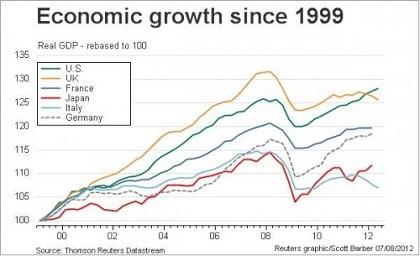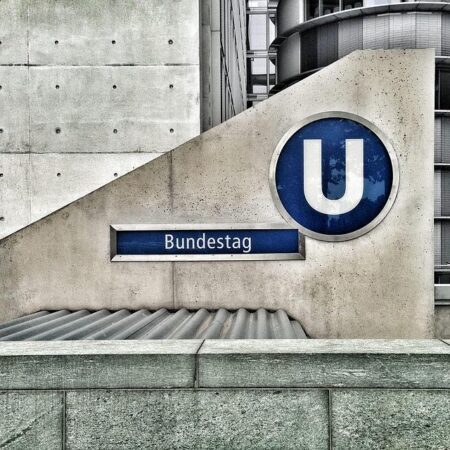As Germany navigates the intricate repercussions of recent global economic upheavals and escalating geopolitical tensions, a meaningful discourse has arisen regarding the nation’s fiscal policies and defense strategies. Central to this discussion is Friedrich Merz, the head of the Christian Democratic Union (CDU), whose advocacy for increased military spending and austerity measures has ignited considerable debate. Detractors contend that these initiatives could be misdirected, perhaps hindering economic progress and jeopardizing social stability in a country still reeling from the effects of the COVID-19 pandemic and an energy crisis exacerbated by ongoing conflicts in Ukraine. In light of these pressing issues, experts advocate for a more integrated approach—one that harmonizes investments in both defense capabilities and social welfare programs—to ensure Germany’s economic resilience moving forward. This article examines merz’s proposals while assessing what is truly necessary for Germany’s economy to flourish amid growing uncertainties.
Revisiting Germany’s Economic Focus in an Evolving Global Context
Given ongoing challenges within the global economy, German policymakers must reevaluate their stance on defense expenditures and austerity strategies. Prioritizing military enhancement, as suggested by figures like Merz, risks reallocating vital resources away from essential domestic priorities. There exists an urgent necessity for investment in cutting-edge technologies, sustainable energy solutions, and robust social infrastructure—elements crucial for fostering both resilience and growth within its economy. As international tensions escalate, it becomes imperative to maintain equilibrium; ensuring that advancements in military capabilities do not eclipse critical internal economic revitalization.
Furthermore, austerity measures can be counterproductive during times when public investment is paramount. Instead of reducing expenditures, Germany should emphasize strategic investments across key sectors such as healthcare, education, and digital innovation. A transition towards a more holistic economic strategy could facilitate job creation while strengthening social safety nets—ultimately promoting stability amidst increasing unpredictability globally. Below are potential focal areas for rejuvenating Germany’s economy:
| Sector | Investment Focus | Expected Outcome | ||||||||||
|---|---|---|---|---|---|---|---|---|---|---|---|---|
| Technology | A.I. Growth & Digital Transformation | Enhanced efficiency & innovation rates | ||||||||||
| Energy | Sustainable Resources Initiatives | Achieving energy independence & sustainability goals | ||||||||||
| Infrastructure | Sustainable Transport Projects & Green Initiatives | Create jobs & lower emissions levels. | ||||||||||
| Healthcare | Access Improvement & technological Innovation | Better public health outcomes |
| Potential Effects Of austerity | Consequences |
|---|---|
| Diminished Public Services | Lower quality educational offerings along healthcare access. |
Enhancing Defense Without Compromising Prosperity: A Comprehensive Strategy for Germany
The call for bolstered defense capabilities must not come at cost economic stability or future growth prospects.As geopolitical strains intensify establishing robust military frameworks becomes increasingly vital ;though achieving this cannot rely solely upon austere practices which would inhibit innovation investment welfare citizens alike.A comprehensive strategy emerges as necessary one prioritizes national security whilst simultaneously nurturing environments conducive towards broader prosperity leaders must ensure funds allocated judiciously emphasizing technological advancements industry alongside defensive outlays.
Pursuing optimal balance requires exploring diverse avenues including:
- catalyzing Innovation Partnerships:</strong Collaborate private sector entities stimulate breakthroughs related advanced defensive technologies;
- Dynamically Adjustable Defense Budgets:</strong Allocate percentage GDP flexibly respond evolving requirements addressing both security needs societal programs;
- Sustainable Energy Investments:</strong Directing contracts toward green initiatives creating jobs enhancing national security simultaneously;
{
<tr}
{Strategy}
{Benefits}
}
{tbody}
<tr}
{Innovation Partnerships}
}
{Stimulates local economies maintains competitive edge}
}
{tbody}
<tr}
{Adjustable Defense Budgets}
}
{Ensures fiscal responsibility addresses urgent demands }
}
<tr}
{Green Energy Investments} {Creates employment opportunities promotes sustainability }{}}
{/table}
In Summary
Germany finds itself at a pivotal juncture as it confronts multifaceted challenges shaping its future amidst rapidly evolving global conditions.Friedrich Merz’s proposals advocating rearmament paired with stringent budgetary constraints aim tackle immediate security dilemmas yet may lack comprehensive frameworks needed foster enduring progress resilience.In grappling demographic shifts transitioning energies geopolitical pressures policymakers must embrace multifaceted strategies prioritizing innovations infrastructural enhancements inclusivity throughout society.the path ahead necessitates addressing pressing financial matters while also envisioning preparations against uncertainties looming tomorrow.As discussions unfold one truth remains evident—the stakes are high consequences arising policy decisions will echo through generations ahead.
The call for bolstered defense capabilities must not come at cost economic stability or future growth prospects.As geopolitical strains intensify establishing robust military frameworks becomes increasingly vital ;though achieving this cannot rely solely upon austere practices which would inhibit innovation investment welfare citizens alike.A comprehensive strategy emerges as necessary one prioritizes national security whilst simultaneously nurturing environments conducive towards broader prosperity leaders must ensure funds allocated judiciously emphasizing technological advancements industry alongside defensive outlays.
Pursuing optimal balance requires exploring diverse avenues including:
- catalyzing Innovation Partnerships:</strong Collaborate private sector entities stimulate breakthroughs related advanced defensive technologies;
- Dynamically Adjustable Defense Budgets:</strong Allocate percentage GDP flexibly respond evolving requirements addressing both security needs societal programs;
- Sustainable Energy Investments:</strong Directing contracts toward green initiatives creating jobs enhancing national security simultaneously;
| {Strategy} | {Innovation Partnerships}
} | {Stimulates local economies maintains competitive edge}
} <tr} | {Adjustable Defense Budgets}
} | {Ensures fiscal responsibility addresses urgent demands }
} <tr} | {Green Energy Investments} {Creates employment opportunities promotes sustainability }{}}
{/table} In SummaryGermany finds itself at a pivotal juncture as it confronts multifaceted challenges shaping its future amidst rapidly evolving global conditions.Friedrich Merz’s proposals advocating rearmament paired with stringent budgetary constraints aim tackle immediate security dilemmas yet may lack comprehensive frameworks needed foster enduring progress resilience.In grappling demographic shifts transitioning energies geopolitical pressures policymakers must embrace multifaceted strategies prioritizing innovations infrastructural enhancements inclusivity throughout society.the path ahead necessitates addressing pressing financial matters while also envisioning preparations against uncertainties looming tomorrow.As discussions unfold one truth remains evident—the stakes are high consequences arising policy decisions will echo through generations ahead. |
|---|




